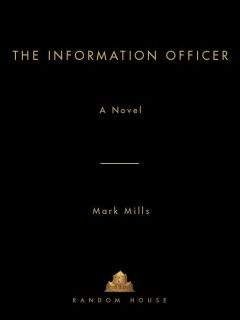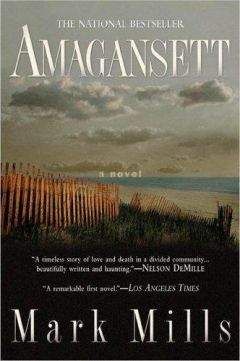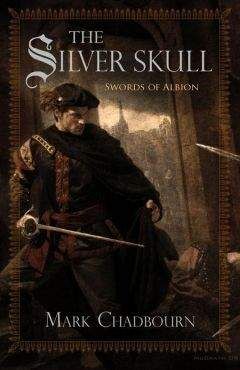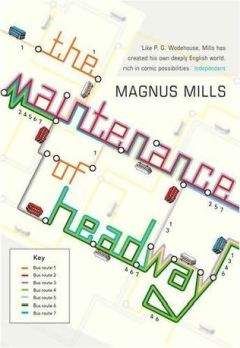Mark Mills - The Information Officer
На сайте mybooks.club вы можете бесплатно читать книги онлайн без регистрации, включая Mark Mills - The Information Officer. Жанр: Прочее издательство неизвестно,. Доступна полная версия книги с кратким содержанием для предварительного ознакомления, аннотацией (предисловием), рецензиями от других читателей и их экспертным мнением.
Кроме того, на сайте mybooks.club вы найдете множество новинок, которые стоит прочитать.

Mark Mills - The Information Officer краткое содержание
The Information Officer читать онлайн бесплатно
“So, what did you want to talk about?”
She had a couple of questions about some material sent by the Ministry of Information to the Times of Malta that had found its way through to her at Il-Berqa.
“Ignore it,” was Max’s advice. “Most of what we get from them is complete rubbish or out of date—usually both.”
“That’s no way to talk about your superiors.”
“I can only imagine it’s done on purpose.”
“On purpose?”
“To confuse the Germans, should they ever intercept a dispatch.”
Lilian laughed before drawing to a halt on the pathway.
“Over here,” she said quietly, setting off across the grass.
“Why?”
“My cousins.”
“What about them?” he asked, falling into step with her.
Felicia and Ena were two leggy creatures in their early teens.
“I know what they’re like. They’ll be watching from their bedroom.”
She led him beneath the boughs of a large orange tree. It was so dark that he sensed rather than saw her take a step toward him.
They kissed briefly, almost cursorily, their lips barely touching.
There was nothing cursory about their second kiss. She pressed her body against his, and the warm tip of her tongue forced its way between his lips.
“Don’t stop,” she said, when they broke off briefly.
And when they finally separated, he bent to recover her cardigan from the ground and replaced it around her shoulders.
“Oh dear,” she said. “Now I’ll have to lie to them at breakfast.”
“Oh well. In for a penny, in for a pound.” He slipped an arm around her waist and pulled her toward him. She avoided his lips.
“And then I’ll have to tell Father Tabone in confession that I lied to them, and he will want to know why.”
“And when you tell him, he’ll say, ‘Lilian, Lilian, not the soldier under the orange tree story again.’”
She gave a horrified gasp and playfully pinched his arm. “You think I am like that, do you?”
“I think I want to kiss you again.”
She didn’t resist, and this time her hands roamed beneath his shirt and up his back.
No thoughts of Mitzi had intruded at the time. Only later, during the long ride back to Floriana on the motorcycle, the searchlights roving the heavens high above his head, did he weigh those first tentative embraces against the urgent abandon that had always marked his lovemaking with Mitzi.
Mitzi had unleashed something in him, presented him with a side of himself that he’d never known existed—a dark and sometimes unsavory side. Maybe it was her guilt, but there were occasions when she had required him to dominate, even demean her. And he had duly obliged, warily at first, like an observer hovering above the bed, then more willingly.
He had since abandoned his theory of an errant wife’s unconscious desire for castigation, partly because it was insulting to her. Did errant husbands feel obliged to act out their guilt with their lovers? Somehow he doubted it. And besides, who was he to pass judgment? An embarrassingly brief encounter with a girl named Felicity after a May Ball at Oxford and a bit of awkward fumbling with Eleanor had represented the entire scope of his sexual experience. Who was he to say what people got up to in the privacy of their bedrooms?
Moreover, since terminating their affair, Mitzi had shown no signs of guilt or regret for what had passed between them. He had fully expected her to withdraw from him, to avoid him whenever possible, but their public relationship had suffered no such reverse. If anything, it had flourished under the unsuspecting eyes of their friends and acquaintances. He still found it strange to spend time with her in company—knowing every inch of the lean body beneath the cotton frock, as well as its most intimate requirements—but her ability to carry on with life regardless had allowed him to package up and parcel off the memories.
That had all changed at Hugh and Rosamund’s drinks party.
My God, I’ve missed you.
A voice straight from their private past, from the flat overlooking Hastings Gardens.
Me too, he had wanted to shout. Me too.
This was the reason he’d been unable to sleep, his brain in open rebellion, deaf to the dictates of his weary body, thoughts of Lilian and Mitzi swirling endlessly, aimlessly, around and around in his head, overlapping, intertwining. And as if that hadn’t been bad enough already, the dead dance hostesses had somehow entered the mix, the pale, lifeless features of Carmela Cassar rising to the surface every so often like some ghoulish phantasm clamoring to be heard. She was unhappy with him, and she had every right to be. What had he done for her? What had he really done for her? No more than the bare minimum, hoping that the affair would somehow resolve itself, or simply go away.
He knew of a number of individuals, men as well as women, who had cracked up and been carted off—one had even tried to end it all with a tube of Veronal—but until now it had never occurred to him to feel much sympathy toward them.
Outside, the first bombs were beginning to fall on Grand Harbour, and a couple of the big guns were barking back. The Bofors wouldn’t open up until the Stukas showed, which they would after the 88s had had their sport, if the pattern of the past week was anything to go by.
Flakes of plaster showered from the ceiling as he wandered through to the living room. Strangely, the prospect of observing a bombing raid on his doorstep almost seemed like light relief after the mental inquests of the past few hours. He pushed open the shutters and stepped out onto the balcony.
He just had time to register the pall of dust hanging over the dockyards and Senglea before a column of water erupted from French Creek. It stood tall and upright, frozen in motion, before collapsing in on itself. Down below, by the bastion wall, the boys in the Bofors gun pit were scanning the skies. If anyone had a right to crack, it was them, especially since the Germans had started targeting the gun emplacements. They didn’t appear too perturbed, though. A couple of them were even laughing.
A few minutes later, they weren’t.
The Stukas came in waves, a cascade of dropping planes, plunging almost vertically through the barrage, shrugging aside the few puffs of pale smoke writhing in the sky. Gone were the days when the Grand Harbour barrage had looked like a giant chestnut tree in full flower, and admiration for the gallantry of the enemy pilots had been at its height. This ack-ack was small beer by comparison, little more than a thin splatter.
He spotted a bare section of four Spitfires following the Stukas in, looking to get among them, waiting for them to come out of their dives. This was the moment when the Stuka was at its most vulnerable, when its bombs had been released and the German pilot flicked the gizmo that pulled the aircraft up on its tail and for a few brief seconds both he and the rear gunner blacked out from the rapid climb. Easy meat for a Spitfire pilot who knew how to time his attack.
So it proved. Max saw two rising Stukas shredded by cannon fire, spinning away and dropping into the harbor. Their ammo exhausted, the Spitfires headed for home, running the gauntlet of 109s waiting for them over Hamrun. Meanwhile, the Stukas kept coming, sharp-angled birds of prey swooping from out of the blue.
Down on the bastion wall, the Bofors crew had yet to fire their gun. The long barrel swept the sky, searching for targets that warranted the precious ammunition. It found one as the raid was petering out: a lone Stuka whose dive didn’t seem to be directed at the dockyards. It wasn’t. The aircraft was bearing straight down on the gun pit.
“Traverse left … Down two … Lateral zero.”
Max was close enough to hear the bombardier’s shouts even above the scream of the diving Stuka.
“On!” yelled the layers almost simultaneously.
“Engage.”
“Fire!”
Pom-pom-pom-pom …
Pom-pom-pom-pom …
The stream of shells ascended toward the plane, bursting in its path, but not hitting it. A moment later, the pilot unloaded his twin bombs.
Max watched, mesmerized, as the two dark objects fell earthward, his brain processing their trajectory and struggling to make the calculation. Bang on target? Or a touch too short?
The gunners appeared oblivious to the menace, their minds on other matters. The Bofors’s barrel swung round to pick up the Stuka as it came out of its dive.
“Engage. …”
Max didn’t hear the command to fire. It was drowned out by a mighty explosion that shook the balcony beneath his feet and sent him reaching for the rail to steady himself.
The bombs had fallen short, slamming into the sheer bastion wall below the gun pit.
Pom-pom-pom-pom …
Pom-pom-pom-pom …
Max raised his eyes toward the Stuka, guided by the red phosphorescence of the tracers, and saw the tail section part company with the main body of the aircraft, cleaved clean away as if by a knife. He glimpsed the pilot and the rear gunner, strangely inert in the high Perspex hood, unconscious still because of the g-forces. The Stuka spiraled away over the rooftops. He hoped for their sakes that they wouldn’t regain consciousness before the end, but it was a good few seconds before a distant crump was heard—time enough for them to have come to and seen death rushing up at them.
The “Raiders Passed” siren sounded as Max was running a razor over his chin. He dressed quickly and headed downstairs, out into the unearthly silence that always followed a raid. The stench of cordite sat heavily in the chill morning air, and the flocks of pigeons were once more settling warily onto the rooftops, having spent the past half hour whirling around in agitated flight. A crowd of admirers was gathered around the Bofors gun pit. The Maltese boys had abandoned their nearby flag station and were reenacting the final moments of the doomed Stuka. The gunners were smoking and laughing and looking justifiably pleased with themselves. It had been a fine piece of shooting, each of them playing their part, a true team effort.
“Congratulations,” said Max.
“Thank you, sir,” replied the bombardier, the oldest of the bunch, a skinny fellow with jug ears and tombstone teeth.
“I saw it all from up there.” Max nodded toward his balcony.
“Wish I had too, sir,” said one of the layers, to a round of laughter.
“There’s only one thing troubling me.” Max threw in a brief pause for effect. “I was watching closely, and the way I saw it, you fired off four clips at four rounds apiece.”
One round more than their daily allowance of fifteen. They quickly figured Max was joking, and the bombardier spun round to the No. 4, the man who worked the pedal that fired the gun. “Oi, Bennett, you plonker. You hear that?” Bennett was the best footballer of the bunch, a sturdy little left-footer who could send an opponent the wrong way with the merest dip of a shoulder. “You’re in for it when the battery commander gets wind.”
“Go easy on him, sir.”
“Yeah. Bennett can’t count for nowt.”
“Don’t know the difference between fifteen and sixteen.”
“Just like his sister, sir. She told me she was sixteen.”
More laughter, and more cigarettes, and a promise from Max that they’d get a special mention in the Information Office’s Weekly Bulletin, something to show the folks back home.
He meant it. He was impressed, not only by the accuracy of their shooting, but by their sheer bloody doggedness. Even as the Stuka’s bombs had been dropping toward them, they had stayed focused on the task of bringing their gun to bear on the enemy. Max knew that he would have frozen; he knew that he would have suffered some quaint metaphysical moment, rooting him to the spot. And it took only one to freeze for the whole team to fall apart.
A chain is only as strong as its weakest link.
This was the tired expression he toyed with as he headed for Paola, dodging the craters in the road. He wouldn’t use it, but he could take its essence, extrapolating the courage of a single gun crew to the bigger picture of the besieged garrison. Better still, he could give it to young Pemberton to play with. The fellow was itching to flex his literary muscles.
The Cassars lived in a long, squat farmhouse on the hillside above Paola, just off the Luqa road. It was an ugly building, notable only for the large beds of brightly colored flowers that hemmed it in on all sides.
Max heard the wailing before he reached the front door. It was loud enough to justify entering the house without knocking.
A dozen or so women were gathered in the drawing room, dressed entirely in black, some sporting faldettas, the ugly, yawning black headdresses favored by the more elderly. The door on the far side of the room was ajar, and through the crack he could just make out the bare feet, poking from beneath a white robe, of someone laid out on a table.
The urge to spin on his heel was sudden and overwhelming, but he had been spotted.
She caught up with him as he stepped outside into the sunlight.
“Excuse me …”
She was young, twenty or so, and she spoke English with barely any accent.
“May I help you?”
The syntax suggested that she worked in some kind of official capacity—a nurse or a teacher, maybe, or an employee at one of the regional Protection Offices. Her name was Nina and she was Carmela’s cousin.
Max had formulated a story that wouldn’t arouse too much suspicion, and she seemed to fall for it, suggesting that it was probably best right now if he spoke to Carmela’s father. News had just reached them that the coffin intended for Carmela had been destroyed by a wayward bomb while en route from Rabat, along with the cart, the horse, and the driver.
“Victor speaks English, but I am here if you need me.”
Victor Cassar was younger than Max had imagined, although his stooped shoulders suggested a man well into old age. He was at the back of the house, watering the flowers with his son, Joe. They moved mechanically, in silent tandem, Joe charging his father’s watering can with buckets of water hauled from below by hand.
It had been a miserable winter, one of the wettest in memory, but at least the wells were full.
Max introduced himself, explaining that he’d known Carmela from the Blue Parrot and had come to express his condolences at her death. Victor visibly perked up, touched by the gesture, which made Max feel worse for lying. He had no choice. The only other excuse for the visit he’d been able to think of—that it was part of a new policy of following up on civilian casualties—would have rung alarm bells with any Maltese worth their salt.
This story, though, was swallowed whole, even if it didn’t endear Max to Joe, who scrutinized him with a sullen scowl. When Joe was sent in search of refreshments, Victor explained that his son, like his wife, had never approved of Carmela’s line of work. He, on the other hand, knowing she was a good girl who would never have allowed herself to be drawn into bad ways, had sanctioned her decision.
Похожие книги на "The Information Officer", Mark Mills
Mark Mills читать все книги автора по порядку
Mark Mills - все книги автора в одном месте читать по порядку полные версии на сайте онлайн библиотеки mybooks.club.




